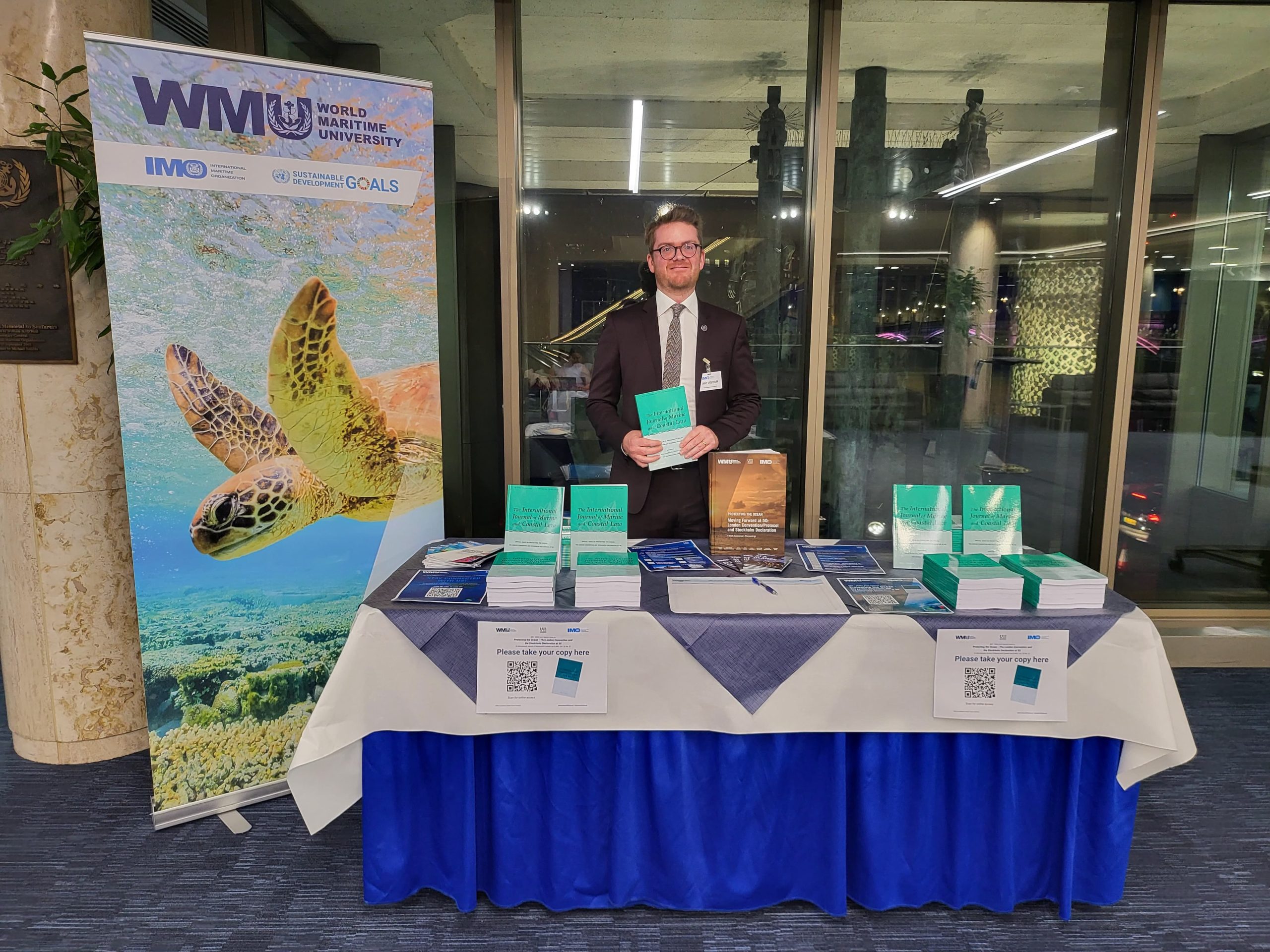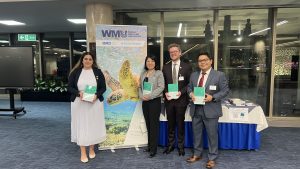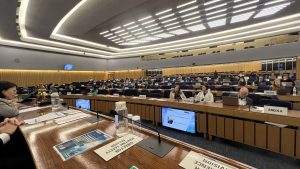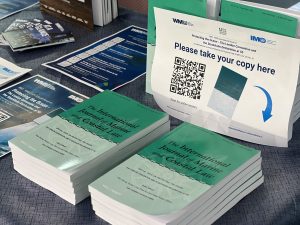
On 30 October, the World Maritime University - Sasakawa Global Ocean Institute (WMU-GOI) and the International Maritime Organization (IMO) launched the IMO-WMU joint Special Issue on “Protecting the Ocean - The London Convention and the Stockholm Declaration at 50”, published in the International Journal of Marine and Coastal Law (IJMCL Vol. 39, No. 3). The launch took place during the 46th Consultative Meeting of Contracting Parties to the London Convention and the 19th Meeting of Contracting Parties to the London Protocol at IMO Headquarters in London, United Kingdom.
Launch of the IMO-WMU Joint Special Issue
Background on the Special Issue
The special issue is based on the joint IMO-WMU International Academic Conference hosted by the WMU-GOI from 10 to 13 October 2022 at WMU and online. This conference marked the 50th anniversary of the Stockholm Declaration and the London Convention. The special issue showcases the outputs of the conference, featuring articles by a multi-disciplinary community of academics, civil societies, policy-makers, and politicians concerned with ocean and maritime affairs, climate change, and sustainable development.




KEYNOTE ADDRESSES
Accessing the Special Issue
Stockholm Declaration, London Convention/Protocol, and Their Legacy
The Stockholm Declaration
The Stockholm Declaration on the Human Environment (1972) contained 26 principles, placing environmental concerns at the forefront of international policy. It initiated a dialogue between industrialized and developing countries on the links between economic growth, environmental protection, and human well-being. The Stockholm Conference also adopted an Action Plan for the Human Environment, containing 109 recommendations for global action, including Recommendation 86(c), which called for an international regime to regulate waste dumping at sea.
The London Convention and Protocol
The London Convention on the Prevention of Marine Pollution by Dumping of Wastes and Other Matter (1972) was established in response to the Stockholm Declaration. It became the first binding international agreement to prevent illegal dumping in marine areas outside internal waters. The 1996 London Protocol strengthened the Convention by introducing the precautionary approach, effectively prohibiting all dumping except for materials on a ‘reserve list.’ Over time, it is anticipated that the London Protocol will replace the London Convention.
Modern International Environmental Law
Since 1972, international environmental law has developed extensively, resulting in key agreements such as:
IMO-WMU International Academic Conference
The Stockholm Declaration
The IMO-WMU Joint International Academic Conference: Protecting the Ocean - Moving Forward at 50 was co-sponsored by:
This conference featured topical papers on the London Convention and the Stockholm Declaration and included perspectives from distinguished experts across government ministries, UN agencies, international and regional organizations, academic institutions, and civil society.
ABOUT THE wmu-sasakawa global ocean institute
The WMU-Sasakawa Global Ocean Institute (WMU-GOI) serves as an independent platform at the ocean science-policy-law-industry-society interface. The Institute fosters dialogue among policymakers, scientists, regulators, industry leaders, academics, and civil society to advance sustainable ocean management in alignment with the United Nations 2030 Agenda for Sustainable Development.
Founding Supporters
The Institute was inaugurated in May 2018 with support from:
